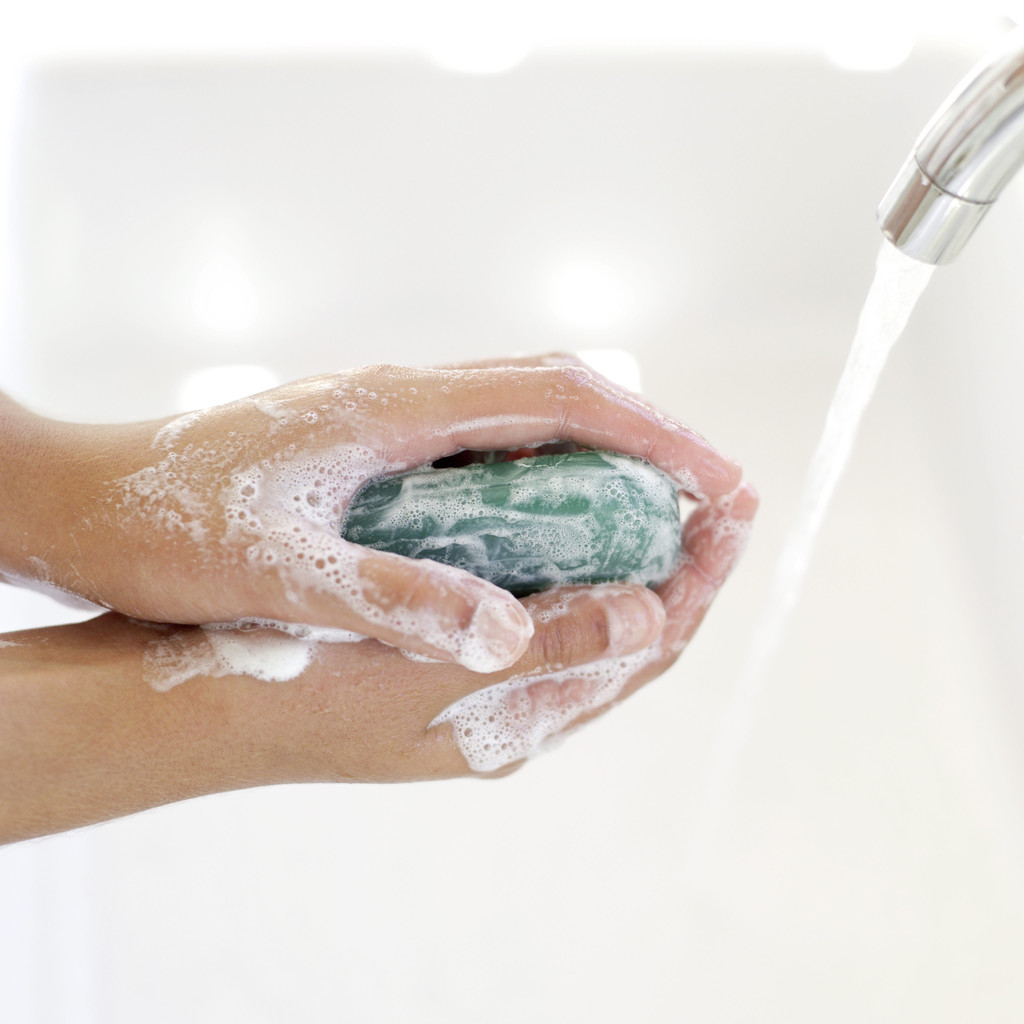 Frogs may once again be sending us a warning, this time about a potential threat likely in your kitchen and bathrooms. Take a moment to think about the antibacterial personal care products you use on a daily basis. Triclosan is an ingredient found in products marketed as antibacterial and antimicrobial such as hand soap, toothpaste, deodorant, cutting boards, and even yoga mats and toys, and it could pose a health risk. Recent studies show triclosan to be an endocrine disruptor, harming the health and reproduction of amphibians and other aquatic life. It’s becoming a common contaminant in our water systems because so many products containing the ingredient are washing down the drain. Triclosan has also shown up in blood, urine, and breast milk samples of people worldwide, as well as indoor dust samples. This could cause a host of other health problems in humans, including the possibility of bacteria becoming resistant to antibiotics.
Frogs may once again be sending us a warning, this time about a potential threat likely in your kitchen and bathrooms. Take a moment to think about the antibacterial personal care products you use on a daily basis. Triclosan is an ingredient found in products marketed as antibacterial and antimicrobial such as hand soap, toothpaste, deodorant, cutting boards, and even yoga mats and toys, and it could pose a health risk. Recent studies show triclosan to be an endocrine disruptor, harming the health and reproduction of amphibians and other aquatic life. It’s becoming a common contaminant in our water systems because so many products containing the ingredient are washing down the drain. Triclosan has also shown up in blood, urine, and breast milk samples of people worldwide, as well as indoor dust samples. This could cause a host of other health problems in humans, including the possibility of bacteria becoming resistant to antibiotics.
In light of these studies, the Food and Drug Administration (FDA) is now participating in a scientific and regulatory review of triclosan, but says at this time, it doesn’t have sufficient safety evidence to recommend changing consumer use of products containing triclosan. However, the FDA says there isn’t any evidence triclosan added to everyday soap and body washes provides extra health benefits over plain old soap and water. Results of the FDA’s review are expected this year.
You can check the ingredient labels on your cosmetics, soaps, toothpastes, and other household products for the inclusion of triclosan or search the U.S. Department of Health and Human Services’ Household Products Database for a listing of products by brand name.
—Katie Borremans, Cheyenne Mountain Zoo
